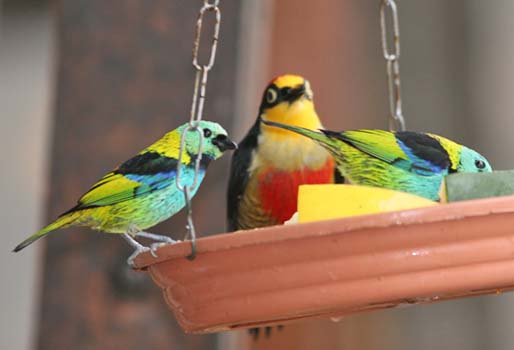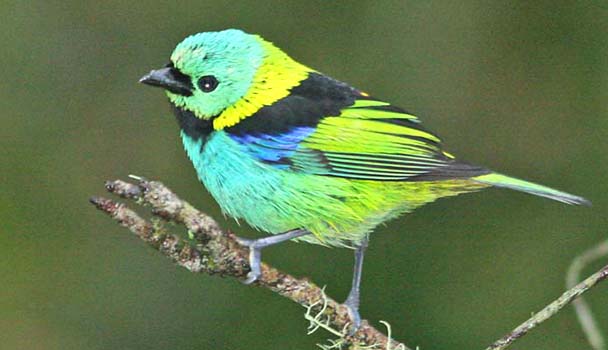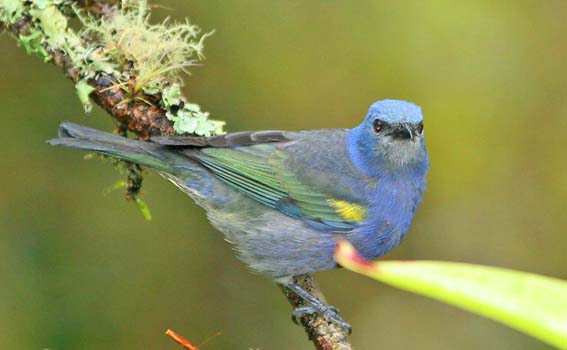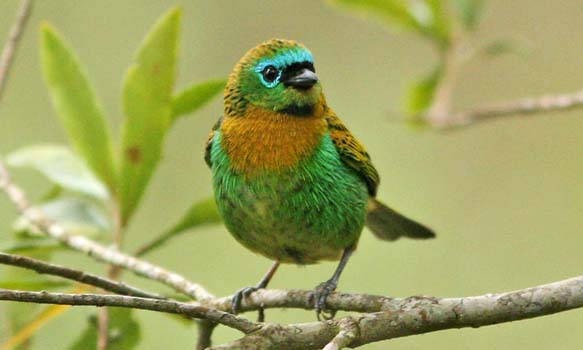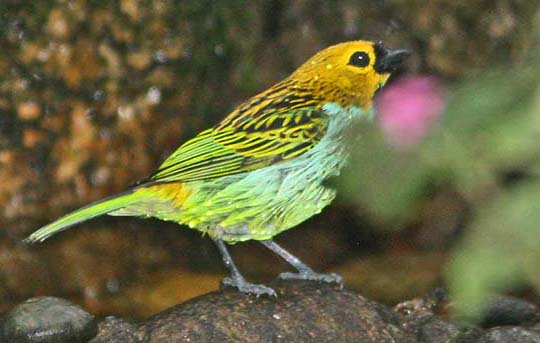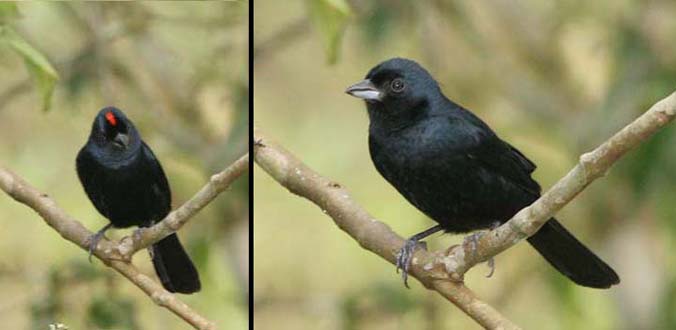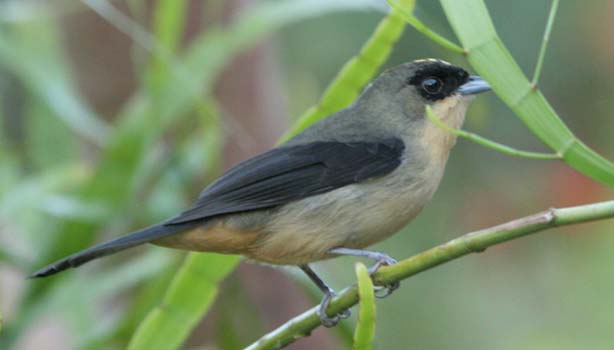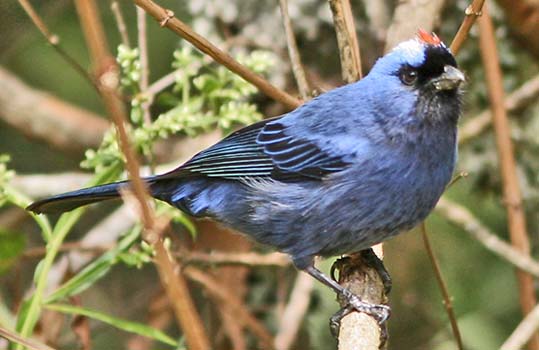| |
|
|
| |
Brazil
is famed for the girls on Ipanema Beach (above © Gary Scott), and
the exotic costumes at Mardi Gras, but is should also be known for its
plethora of colorful tanagers. In the Atlantic mountains of
southeastern Brazil, some of them even come to feeders holding bread
and bananas at Itatiaia and Intervales parks (right; two Green-headed
Tanagers with a Yellow-fronted Woodpecker at Itatiaia NP).
Here is a gallery of tanagers in southeastern Brazil. |
|
|
|
| |
|
Green-headed Tanager seems to be the most frequent at the feeders. It is a striking mosaic of blue-green, lemon yellow, deep blue and black. |
|
|
| |
| Azure-shouldered Tanager is another standard visitor at the feeders, especially at Intervales. |
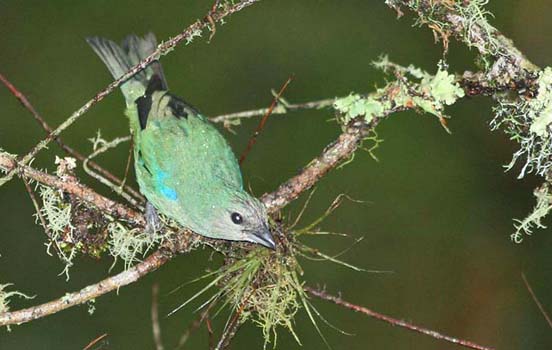 |
|
|
| |
|
Golden-chevroned Tanager is also a feeder favorite, and can at times be the dominant species there. |
|
|
| |
| My favorite tanager, though, did not ever visit a feeder while we were around. Instead, Brassy-breasted Tanager was found in mixed flocks in the woods of Intervales. |
|
|
|
| |
|
Gilt-edged Tanager
is primarily a forest canopy species, and only once did we find it at
eye-level: taking a bath in Nora's yard one gloomy afternoon. |
|
|
| |
| The female Ruby-crowned Tanager
(right) wears shades of warm brown, and was frequent at Intervales
feeders. The all-black male (below right) was more shy, and only rarely
can one see the namesake crown stripe (below left) |
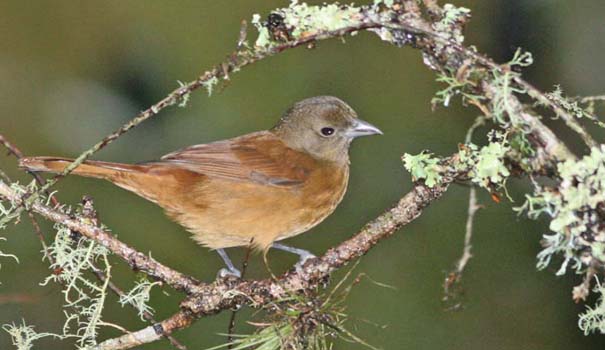 |
|
|
|
| |
|
Black-goggled Tanager
is also sexually dimorphic but the differences are matters of degree
only. This crisply-patterned bird with obvious black 'goggles' is a
male. This tends to be a skulker in the understory. |
|
|
| |
| Burnished-breasted Tanager
is a bird of drier or more open forest. Although it occurs in the
southeast, our experiences with it his trip were at Emas NP. |
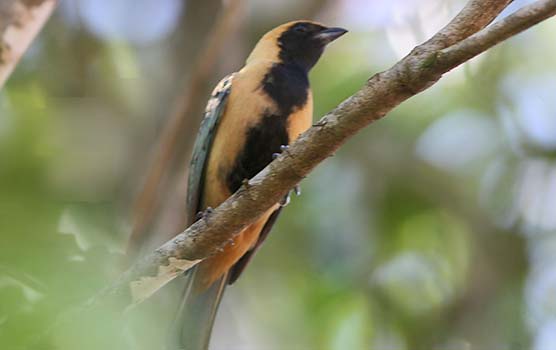 |
|
|
| |
|
Diademed Tanager
did appear in a mixed flock near our feeder at Intervales, but did not
visit it. However, at upper elevations in Itatiaia, Edson attracted
this male by throwing out bread in a clearing at a very temporary
"feeder." Note the small red crown (=diadem) on this colorful tanager. |
|
|
| |
| Finally, Olive-green Tanager
did like the feeders, but was also common in single-species flocks, or
sometimes in mixed species flocks, from undergrowth to canopy.
Taxonomically it is rather distantly related to the other tanagers, and
might even be in a separate family . . . |
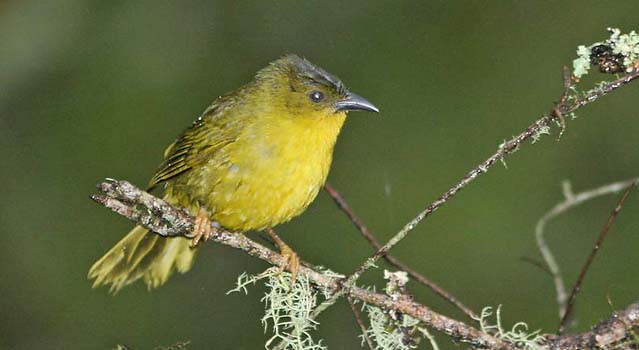 |
|
|
| |
|
|
| |
|
|
| |
|
page created 4 Sep 2010
|
|
© Don Roberson 2010 |
|
|

